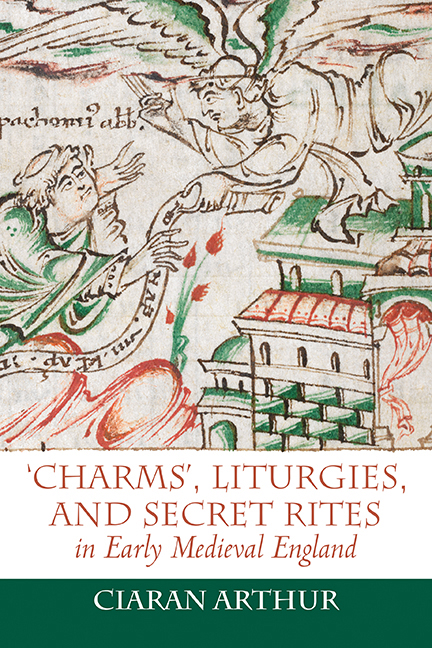Book contents
1 - Kill or Cure: Anglo-Saxon Understandings of Galdor
from Part I
Published online by Cambridge University Press: 27 July 2018
Summary
‘connotations of gealdor in sophisticated, and Christian, literature seem to be entirely evil’.
The first part of this book engages with one core issue of the ‘charms’ genre: the translation of the Old English noun galdor (pl. galdru) as ‘charm’. It explores the different non-ritual texts that use this word and the surrounding contexts that inform its meaning, before re-evaluating the meaning of galdor in Anglo-Saxon rituals. The corpus of Old English highlights the range of texts in which galdor appears, and in a small number of cases the word is endorsed as a Christian concept denoting spiritual wisdom, discernment, and divine revelation. However, the noun mainly occurs in proscriptive contexts in glosses and didactic prose texts such as law codes, homilies, and religious guides, where it is condemned as a dangerous form of spiritual knowledge that leads Christians astray. Given that galdor is a crucial word for modern historiographies of ‘charms’, this chapter reconsiders its meanings in non-ritual texts to investigate how various Anglo-Saxon scribes understood this term.
The Etymology of ‘Galdor’
The Toronto Dictionary of Old English (hereafter DOE) offers several different definitions of galdor, according the many variants of this noun that are found in homilies, saints’ lives, law codes, wisdom poems, riddles, and heroic poetry. These definitions include: ‘poem’, ‘song’, ‘incantation’, ‘charm’, ‘spell’, ‘illusion’, ‘deception’, ‘snakecharmer’, ‘enchanter’, ‘wizard’, ‘divination’, ‘soothsaying’, ‘prophesying’, ‘necromancy’, ‘communication with the dead’, ‘sorcery’, and ‘sound / call of a horn’. According to the DOE, forms of this word could signify general sounds and utterances as well as supernatural knowledge and practices.
The noun galdor and its verbal counterpart galan have cognates in other Germanic languages that indicate many different original meanings for these words before they were used to denote specific religious concepts in the late Anglo-Saxon period.
- Type
- Chapter
- Information
- Publisher: Boydell & BrewerPrint publication year: 2018



